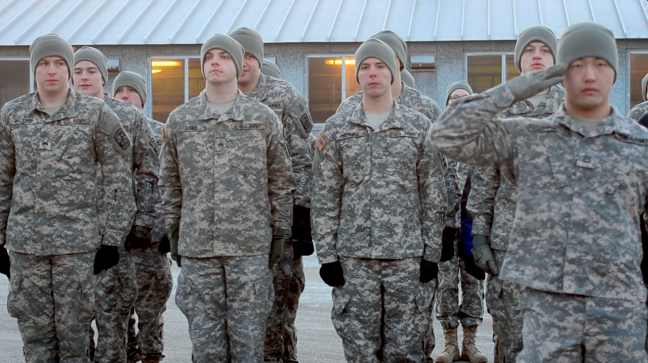I have never served in our military, nor do I intend to. Why not? I love this country. I would give my life if it meant protecting the people I love and the freedoms I enjoy. It is not because I abhor violence, though in principle I do. Neither is it because I am afraid to lose my life, though truly I am. I will not join the military simply because I don’t want to, and more importantly, I don’t have to.
As a child of the middle class, I have brighter prospects ahead. I suspect this is true for the majority of my generation — people who grew into adulthood without the slightest expectation of ever entering the service. This is our country’s loss and my generation’s loss too.
Our military loses the value of our service, the investment of our families and even social relevance. We ourselves lose the chance to perform one of the highest acts of patriotism and the chance to share the experience of that service with others of our generation. More importantly, the military feels alien to us, irrelevant and unimportant. Disastrously, we have ceded all authority and accountability over it. In light of these problems, and in the spirit of civic engagement, I propose we reinstitute the draft.
The draft brings our society a much-needed sense of perspective with regard to military service. Today, we civilians idolize those in uniform, offering a worshipful “thank you for your service” as we hurry past them on the street.
The way that we offer our praise yet maintain our distance bespeaks our own guilt more than any real respect for those who serve. We venerate our soldiers not because we know the horrors they must endure, but rather because we have no idea — worse, we have no wish to find out. Our endless pledges to “support the troops” mask the truth: We do shamefully little for those who serve.
Veterans who live with addiction, on the streets or refuse to continue living at all offer a grim suggestion of the kind of reception that awaits our returning servicemen and women.
For those currently serving in combat, a massive military budget cannot alone guarantee their safety. It matters where we send our soldiers, and for what reason. If we instituted the draft, these conflicts, and the fate of those who fight them, would become everybody’s business. War is difficult to ignore when it is being fought by your cousin, your neighbor, your grocer. With the draft, we would have no choice but to quit this nonsense of praising soldiers without offering due support.
There would also be an important social benefit to a military based on conscription. Right now, the country is strained to the breaking point along dividing lines of race, class and political affiliation, with precious little to unify us. National defense, however, is a project that should concern all of us.
Under a draft, people from every region, creed and color would be forced to cooperate in protecting our country. Furthermore, we would witness the equality servicemen and women of different backgrounds would enjoy under conscription. Perhaps this could shed light on the gross inequities in our country, helping us to spur progressive change.
Finally, the draft would improve the quality of our military and make us more prudent in its use. Policy scholars understand the key to the success of any government program, whether it be Head Start, Social Security or the postal service, is securing buy-in from folks with money and clout. The U.S. military is no exception. Since the end of the Vietnam War, however, the elite class has paid attention to the military only when it serves their interests.
I find this egregious. Our servicemen and women presumably signed up to defend our country, not to engage in corporate empire-building. We dishonor their service and their sacrifice when we allow the elite class to dispatch them on ill-advised imperial adventures in the Middle East or elsewhere. The only way to ensure an effective and responsible military is for the wealthy and the powerful to have some skin in the game.
When the children of senators, doctors, CEOs and judges stand among the ranks of our armed forces, perhaps our country will be compelled to scrutinize the causes for which we send these young people to fight and die. Perhaps then, we will be more judicious in picking our battles.
We ought to start a draft today, eliminate all but the most necessary exemptions and let our nation realize war is no frivolous thing. It is a gamble taken on the backs of our children.
What do we gain with the draft? Wars would still be fought and soldiers would still die. Yet, I am confident with the lives of our society’s youth on the line, we would be much more conservative in the use of our armed forces. We would be much more invested in the conflicts we did choose to pursue.
Soldiers and veterans would benefit from a society more or less united in their support, and where their wartime experiences and traumas are normalized, not fetishized or ignored. The military would be built with every demographic, and our diverse society would share in the common experience of service. For patriotism, for equality and for a foreign policy grounded in prudence, we ought to reinstate the draft.
Wilder Deitz ([email protected]) is a senior majoring in social welfare and French.














